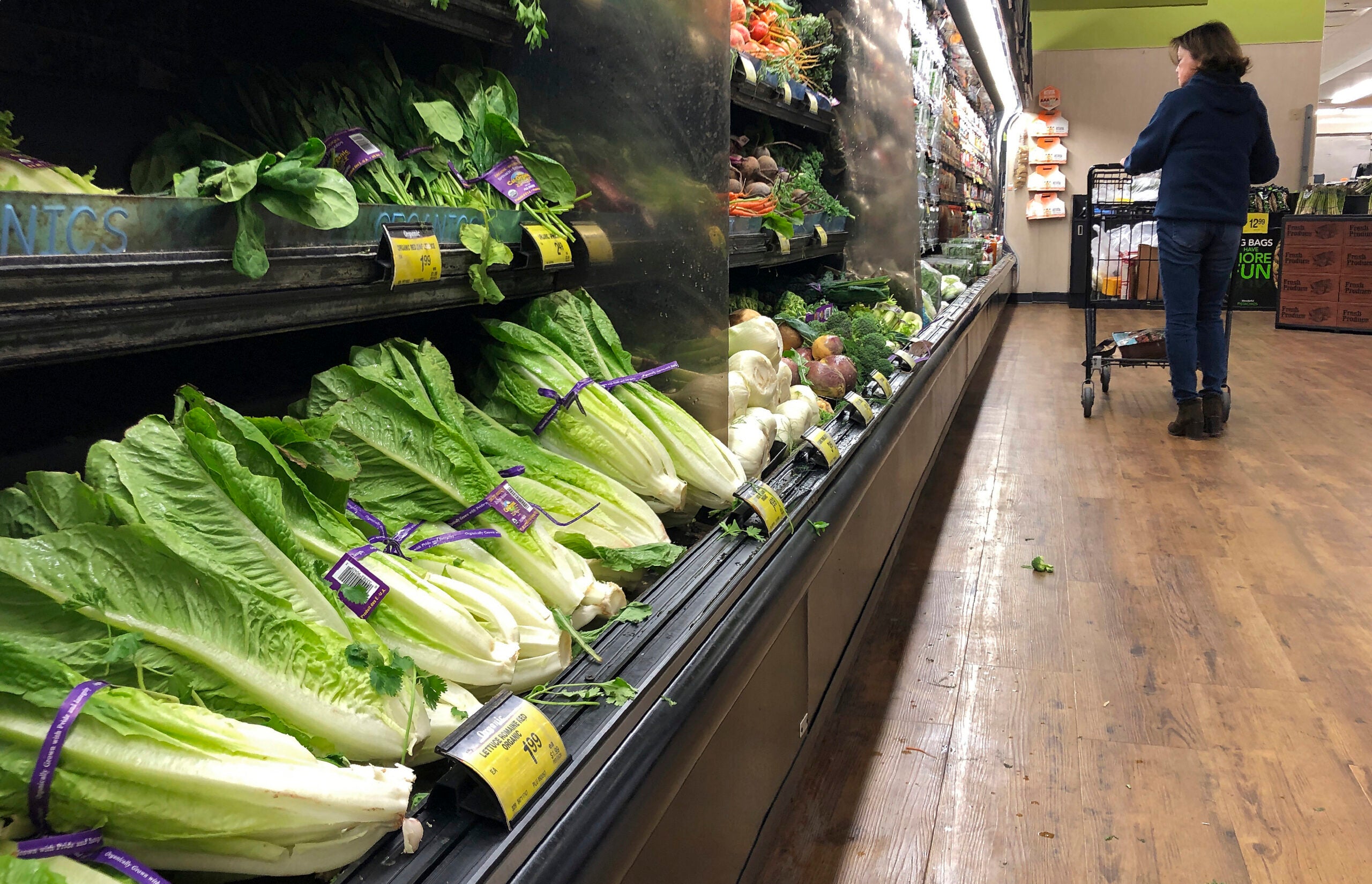Conceptions of aging usually focus on decline and difficulties, but we speak with a writer who says that many of those negative perceptions may be wrong. Then we take a look at how the changing seasons can exacerbate food deserts in the state, and look into the contents of the CIA torture report that was released today.
Featured in this Show
-
Especially In Winter, Downtown Racine Lacks Access To Fresh Food
According to data from the U.S. Department of Agriculture, most of downtown Racine is a food desert — and as the seasons change, access to healthy food can become even more difficult.
The USDA publishes a map of all the food deserts in the country. Zoom in on southeastern Wisconsin, and keep zooming in on Racine, and it’s clear that almost all of downtown Racine is a food desert.
A food desert is classified as a place where access to healthy, fresh and affordable food is limited. In this particular case, the USDA considers a food desert to be any place where a significant share of the residents are more than a mile from the supermarket in an urban area.
In the summers months, farmers markets and community gardens can help fill in the gaps in the availability of fresh produce. But now that the seasons have changed, the healthy food is harder to come by.
Dottie-Kay Bowersox, the Racine Health Department’s public health administrator, said it’s truly difficult for people in the Belle City of the Lakes to access unprocessed foods.
“In order to find fresh produce you’re going to have to travel to one of the major grocery stores outside the confines of the city limits,” Bowersox said. “There are some of the smaller convenience stores that have a limited amount, but you’re going to be paying a premium price for those products.”
The grocery stores that do exist are located on the edge of downtown Racine.
“If you’re impoverished and don’t have a car, it’s not going to be very easy to get to a grocery store,” Bowersox said.
In landlocked Racine, where there’s little room for retail development, Bowersox said retail grocers cannot find large-enough spaces to bring their stores. There are a number of convenience stores, but those aren’t much help when it comes to fresh foods.
“On many of them, when you walk in the first thing you see are the liqueur options. Then you see the cigarettes. Then you see the lotto. Then you see the gambling machine. And all of that is surrounded by processed food,” Bowersox said.
Racine ranks low in the state in overall health, and suffers from high levels of obesity.
“Part of that has to do with eating and part of that has to do about exercise,” Bowersox said.
-
Journalist: CIA Torture Report Revelations Were 'Shocking'
The details uncovered in the 524-page “torture report” that the U.S. Senate Intelligence Committee released on Tuesday were, according to veteran journalist Paul Singer, startlingly brutal.
“I got to write the ugliest story I’ve ever written in my 30-year journalism career, basically summarizing some of the more shocking disclosures in that report,” the USA Today politics editor said on Tuesday.
The report detailed the enhanced interrogation methods used by the CIA to try to illicit information from terrorism suspects in the years following the Sept. 11, 2001, terrorist attacks. Singer said that the details included in the report went well beyond what was expected.
“What we expected, I think, was that they would put out a report explaining that they were water-boarding prisoners,” said Singer. “What this report did was actually go into some fairly excruciating detail of even more dramatic treatment of prisoners in dozens of cases — I mean, stuff that is real ‘Lord of the Flies’ brutality. I think it shocked everybody. It obviously looked very bad for the CIA.”
Some of the interrogation methods included “rectal feeding” and “rectal rehydration,” sleep deprivation of up to 180 hours (7.5 days), mock executions and slamming detainees into walls.
According to Singer, the interrogation techniques might not even be the most damning part of the report.
“I think the part that is worse is the committee … said essentially that the CIA has been lying to the White House, and to everybody else who would have been able to oversee the treatment of detainees. And they’ve been lying about this for quite a while,” said Singer.
The report suggested that CIA officials didn’t brief President George. W. Bush on the advanced interrogation techniques before April 2006. The CIA, for its part, has disputed that it provided any inaccurate information to the president or Congress.
There is also some controversy over whether these techniques lead to useful intelligence. According to Singer, the CIA has claimed that their interrogation methods “generated good leads and prevented other terrorist attacks, and has helped keep America safe.”
The Senate report disagreed.
“The committee in its report said flat out, basically, we got no good intelligence out of this — that people who have been chained to a wall for 50 hours in a row and deprived of sleep do not provide better intelligence and information than a detainee that has been treated with some respect and has been rested and fed’,” said Singer.
-
After Years Of Political Debate, Torture Report Released To Public
A report detailing the CIA’s past use of torture was released today after years of debate. A national security expert weighs in about what’s detailed in the report, and whether its release poses harm to Americans abroad.
-
Much Of Downtown Racine Is A Food Desert And It Gets Worse In The Winter
Most of downtown Racine is considered a food desert, meaning that there is no ready access to fresh, healthy, and affordable food. As winter comes, and the summer’s farmers markets pack up, access to fresh produce can be even more difficult.
-
New Data Shows Many Preconceptions About Aging Are False
Although most of us fear the decline of aging and assume life will be difficult, a growing body of scientific data shows life can actually get more fulfilling as we get older.
Episode Credits
- Cynthia Schuster Host
- Veronica Rueckert Host
- Galen Druke Producer
- Chris Malina Producer
- Dottie-Kay Bowersox Guest
- Paul Singer Guest
- Mike German Guest
- Anne Tergesen Guest
Wisconsin Public Radio, © Copyright 2025, Board of Regents of the University of Wisconsin System and Wisconsin Educational Communications Board.



